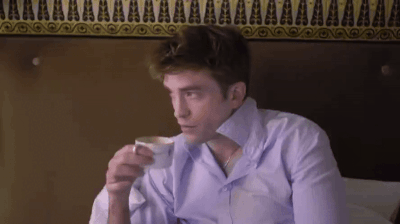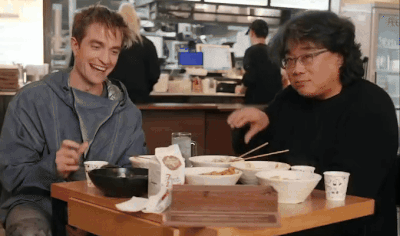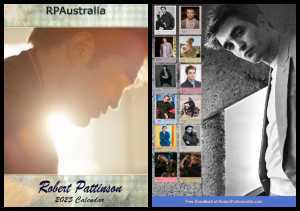PRINT: “[Pattinson’s] taken one of the most fascinating and unconventional routes with his stardom” | FilmSchoolRejects
FilmSchoolRejects talk Robert Pattinson and the “Pattinsance”
Since the positive response of Robert’s role as Henry Costin, there seems to be a bit of chatter in relation to Rob’s career choices.  In yet another article about the evolution of Robert, Marshall Shaffer from Film School Rejects delves into how he sees Robert’s career evolve.  Below is an extract, but you should click on the link to read the entire article:
Take his role in David Michod’s 2014 film The Rover, where Pattinson plays the emotionally stunted Rey, a childlike figure trying to hold his own in an apocalyptic Australian landscape. After teaming up with Guy Pearce’s Eric to help locate Rey’s brother, the two stop at a motel and soon find themselves ambushed by a tank. Rey fires no bullets, but in the tense shootout, Michod keeps cutting back to a tight close-up of Pattinson’s face. There’s little going on there but breathing and staring. Still, it’s undeniably riveting and tense as all hell since Rey’s true intentions remain unknown.
Later, Michod turns to Pattinson to carry a key scene of emotional release in preparation for the film’s climactic showdown. As Keri Hilson’s “Pretty Girl Rock†blasts from the car radio, the camera slowly pushes in on Rey as he sings a lyric, twitches, returns to his normal blank expressions and repeats the sequence. It’s the clearest example of how Pattinson’s tics are not planned actorly flourishes but instead emerging organically against fierce resistance. In The Rover, he shows how hard-fought the apparent ease of resting Pattinson face is — how many demons must be faced, impulses tamed, emotions mastered.
Pattinson stealing the show in The Rover comes as a byproduct of his hard work, not an intentional feature of his role selection. He demonstrates no desire to keep himself front and center, instead lending his talents to interesting directors and roles. He’s stayed true to his word from a 2012 interview promoting Cosmopolis, his only film since Twilight as a sole lead.
…
Young actors tend to use supporting roles as a stepping stone to advance their careers towards leading man status, but since he attained it at such an early age, Pattinson can pursue whatever speaks to him. He doesn’t need to seize the spotlight. It found him, and he can choose to slip in and out of it when he desires. Pattinson’s recent turns as secondary characters in Queen of the Desert, The Childhood of a Leader and The Lost City of Z manifest the beginnings of a natural character actor, one who brings more to a scene than he takes from it. He knows when to accentuate his mannerisms, such as his self-effacing British elite routine as T.E. Lawrence that brings some much-needed levity to Queen of the Desert. But he also knows when to sit back and listen to advance the journey of the leading character like his Henry Costin does for Charlie Hunnam’s Percy Fawcett in The Lost City of Z. Pattinson lost 35 pounds for the role, too, yet none of the awe over such a dramatic appearance shift overwhelms the story.
And what’s most remarkable about this latest chapter — the “Pattinssance,†if we must — is that Pattinson never asks anyone to use Twilight as a reference point for his work. The roles neither cut against the grain of his Edward Cullen persona nor consciously trade on any established iconography. The closest he’s come to commentary on his past were a pair of 2015 releases, Maps to the Stars and Life, both of which enter the orbit of movie stars. In the former, Pattinson plays a Hollywood limousine driver who remains cautiously shy of the industry while also attempting to penetrate it, engaging in the incestuous craziness with an extreme outsider’s hesitancy. In the latter, Pattinson takes on the real-life Dennis Stock, a photographer who shot the famous images of James Dean walking in Times Square. It’s no coincidence that he chose to be the subject of this famous gaze, not the object. By wielding the observational lens of the camera, Pattinson gains power and control in directing mass culture, a sly flip of the script for an actor who’s spent the better part of the last decade ducking the paparazzi at every turn.
Stock might be Pattinson’s most effortlessly intuitive role, even as he brandishes one of his most apparent accents. If nothing else, it showcases what makes him such a black sheep among his millennial thespian peers. He is more comfortable quietly performing his part, so long as it’s for a great director, than with transformation or ironic commentary. Pattinson is a rare breed: a born supporting actor in a time of narcissists, a social media era performer who desires not to be obsessively public or private — just to act. And with roles in the can for indie iconoclasts the Safdie Brothers and David Zellner — not to mention looming collaborations with Harmony Korine, Olivier Assayas and Claire Denis — Pattinson has yet to exhaust his capability to redefine the possibilities for actors departing a behemoth franchise.

























sue
Good read to kick the week off! Thanks Maria.
Carmel
Standing up and slow clapping.
‘a born supporting actor in a time of narcissists’ YES!
Kathy
FINALLY people are starting to recognize and appreciate this man’s tremendous talent! Thank goodness.
Maria
I know @Kathy was really great to see The Haunted Airman actually referred to. I love him as Toby Jugg.